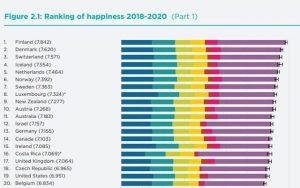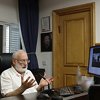My new article on Linkedin “Diversity – the Key to Success”

A few weeks ago, several news outlets published a story that went largely unnoticed by legacy media, but which defies reason. Apparently, the Grace Church School in Lower Manhattan issued a 12-page guide to students and staff explaining the school’s mission of inclusivity. The guide encouraged them to replace some of the most essential words in any language with substitutes that denied them of their meaning. For example, the guide reads, “Instead of ‘Mom’ and ‘Dad,’ at Grace we say ‘grown-ups,’ ‘folks,’ or ‘family.’” Or, “Instead of ‘husband,’ ‘wife,’ ‘boyfriend,’ ‘girlfriend,’ at Grace we say ‘spouse,’ ‘partner,’ ‘significant other.’”
Instead of making everyone the same, we should boldly emphasize our differences and use them for the common good. All of a sudden, we will discover that everyone is beautiful in their own unique way! Building a robust society depends not on making everyone the same, but on embracing everyone’s differences. Diversity is the key to success; uniformity—the road to failure.
The guide does not stop there. It continues its effort to engineer the consciousness of students and teachers by clearly stating its agenda: “We actively try to undo notions of a ‘typical’ or ‘normal’ family structure, each family is unique.” Also, the guide points to a problem it defines as “Heterosexism,” which is “The assumption that heterosexuality is the natural or default form of sexuality, and is inherently good or inevitable.”
Religion, too, is “treated” in the guide. “Instead of [asking] ‘What religion are you?’ say ‘Are any religious/faith traditions important to you?’” Or, “Instead of [saying] ‘Merry Christmas!/Happy Holidays!’ say ‘Have a great break!’” There is much more but you get the point.
The thing is that the blatant attempt at consciousness engineering was largely ignored. The children and parents were afraid for their future, teachers were afraid for their jobs, and legacy media had no interest in protesting the obvious oppression of free thought, so very few outlets reported it.
But one person could not keep quiet. Paul Rossi, a teacher at Grace Church, wrote a piece titled “I Refuse to Stand By While My Students Are Indoctrinated,” and published it on Bari Weiss’ blog Common Sense. In the subtitle, he wrote, “Children are afraid to challenge the repressive ideology that rules our school. That’s why I am.”
Rossi admits that he is afraid for his future, but feels he has no choice since the problem isn’t only with Grace Church, but a widespread issue. “I know that by attaching my name to this I’m risking not only my current job but my career as an educator, since most schools, both public and private, are now captive to this backward ideology,” he admits. “But witnessing the harmful impact it has on children, I can’t stay silent.”
Luckily for Rossi, and for all of us, although it may take a while, and may still spread further, eventually, forced elimination of differences among people will not work. Nature created us different, not the same, and we cannot “undo” our making on a whim. If it contradicts nature, it will not work. It will only torment those who try.
The Procrustean bed to which the “inclusive” ideology is attempting to chain us will create the suffering that all Procrustean beds are made to create, but it will not make us the same or equal; it is totally useless and redundant. Mom and Dad are the two most important figures in our lives, which is why every culture since antiquity has dedicated specific pronouns to designate them. They are not “family” and they are certainly not “folks.” They have given us our very lives, and to a great extent, they are responsible for the people we are. It is almost the same with “husband” and “wife”: “Partner” just doesn’t carry the same weight. “Husband” and “wife” imply commitment, and “partner” implies much less of it, if any. Each person that we meet is unique, and merits a unique name or title. Denying uniqueness deprives all of us of personality.
Diversity is not something to erase; it is something to embrace! It is a source of power, resilience, and beauty! We can only appreciate the qualities of one race when we know how unique it is. However, we will know that it is unique only if we know the qualities of all the other races. Therefore, we cannot appreciate one another unless we know who we are and how different we are from one another. Erase the differences, and you have erased our uniqueness and, even worse, our ability to appreciate one another.
Instead of making everyone the same, we should boldly emphasize our differences and use them for the common good. All of a sudden, we will discover that everyone is beautiful in their own unique way! Building a robust society depends not on making everyone the same, but on embracing everyone’s differences. Diversity is the key to success; uniformity—the road to failure.
[281085]
Filed under: New Publications, Society - No Comments →
 Question: Did the Kabbalists predict that an information explosion would take place in the last generation and people would not be able to cope with the processing and use of information? What kind of reboot should society make today for the information use?
Question: Did the Kabbalists predict that an information explosion would take place in the last generation and people would not be able to cope with the processing and use of information? What kind of reboot should society make today for the information use?














